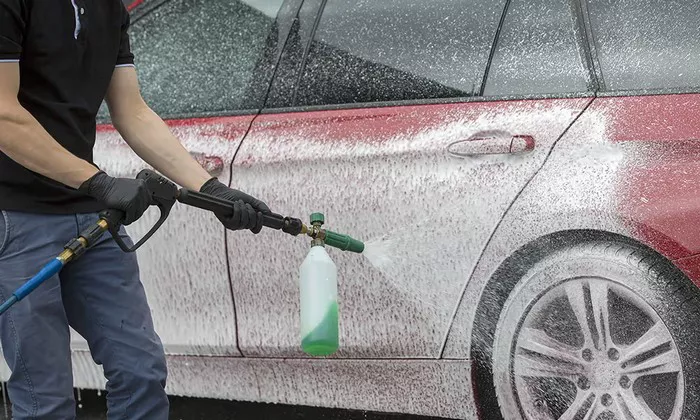Using a power washer to clean your car can be an efficient and effective method, but it comes with risks if not done properly. Many car owners are unsure whether it’s safe to use a power washer on their vehicles due to concerns about potential damage. This guide aims to provide you with the necessary information to make an informed decision and ensure that you can safely use a power washer to clean your car.
Understanding Power Washers and Their Potential Impact
Power washers, also known as pressure washers, are machines that use high-pressure water spray to remove dirt, grime, mold, and other contaminants from surfaces. They come in various sizes and power levels, ranging from small electric models to large gas-powered ones. While power washers are effective at cleaning, they can also cause damage if not used correctly.
Choosing the Right Power Washer
Before using a power washer on your car, it’s essential to select the appropriate equipment. Opt for a pressure washer with adjustable pressure settings and a nozzle specifically designed for use on vehicles. Lower pressure settings and wide-angle nozzles are preferable to minimize the risk of damage to your car’s paint and finish.
Preparing Your Car for Power Washing
Before you begin, it’s crucial to prepare your car for power washing. Start by rinsing the vehicle with plain water to remove loose dirt and debris. Next, apply a gentle car detergent or soap using a sponge or wash mitt. Allow the detergent to loosen any stubborn grime for a few minutes before rinsing it off.
Safe Techniques for Power Washing Your Car
When using a power washer on your car, follow these safe techniques to minimize the risk of damage:
1. Maintain a Safe Distance: Keep the nozzle of the power washer at least 1-2 feet away from the surface of the car to prevent damage to the paint and finish.
2. Use Gentle Pressure: Start with the lowest pressure setting and gradually increase it as needed. Avoid using excessive pressure, especially on delicate areas such as windows, mirrors, and trim.
3. Work in Sections: Divide the car into manageable sections and focus on one area at a time. Move the nozzle in a sweeping motion, overlapping each pass slightly to ensure thorough cleaning.
4. Mind the Angles: Avoid directing the spray at sharp angles, seams, or edges, as this can force water and debris into vulnerable areas and cause damage.
Aftercare and Maintenance
Once you’ve finished power washing your car, rinse it thoroughly with clean water to remove any remaining detergent or residue. Use a soft microfiber towel or chamois to dry the vehicle, starting from the top and working your way down. Inspect the car for any signs of damage or areas that may need extra attention, such as stubborn stains or debris buildup.
Conclusion
Using a power washer to clean your car can be a convenient and effective method, but it requires caution and proper technique to avoid causing damage. By choosing the right equipment, preparing your car properly, and following safe techniques, you can achieve a thorough clean without compromising your vehicle’s appearance or integrity.
FAQs
Q1: Can I use a power washer on my car’s windows and mirrors?
A1: Yes, you can use a power washer on your car’s windows and mirrors, but it’s essential to exercise caution. Use a wide-angle nozzle and maintain a safe distance to prevent damage to the glass or seals. Additionally, avoid directing the spray at sharp angles to minimize the risk of water intrusion.
Q2: Is it safe to use a power washer on a newly painted car?
A2: Using a power washer on a newly painted car can be risky, as the paint may not have fully cured yet. It’s best to wait at least 30 days before using a power washer on a freshly painted vehicle to ensure that the paint has had time to harden properly. Consult with the paint manufacturer or a professional detailer for specific recommendations.
Q3: Can I use hot water in my power washer to clean my car?
A3: While hot water can help dissolve stubborn grime and grease more effectively, it’s generally not necessary for cleaning a car. Using hot water in a power washer can also increase the risk of thermal shock, which may damage the vehicle’s paint or finish. Stick to using cold or lukewarm water for car washing to minimize the risk of damage.

